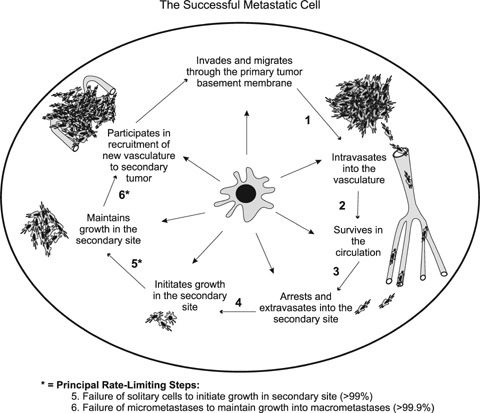1.

The successful metastatic cell must carry out a number of sequential steps in order to form clinically relevant metastases. Based on the complexity of the metastatic process, it seems unlikely that all cancer cells would be able to successfully complete all the steps necessary to form macrometastases. Indeed, it is known that metastasis is a highly inefficient process, and that not all the steps of the metastatic process are equally inefficient. The principal rate limiting steps are (5) initiation of growth into micrometastases; and (6) maintenance of growth into macrometastases, whereby less than ∼2% of solitary cells are able to initiate growth and less than ∼0.02% of cells are able to maintain growth into clinically relevant metastases [10, 12, 13].
